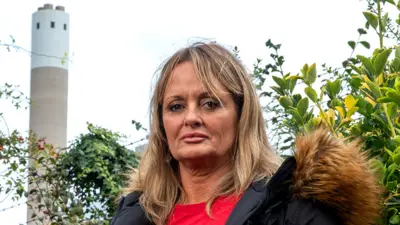We've updated our Privacy and Cookies Policy
We've made some important changes to our Privacy and Cookies Policy and we want you to know what this means for you and your data.
Ulster Bank in Northern Ireland made ôÈ51m profit in 2018
- Author, John Campbell
- Role, ôÕÑ¿å¥éá News NI Economics & Business Editor
Ulster Bank in Northern Ireland made a pre-tax profit of ôÈ51m on turnover of ôÈ184m in 2018.
That is down on 2017's ôÈ59m, however last year's figure had been boosted by the 'write back' of bad loan charges.
Write-backs refer to money set aside to cover expected losses that can now be released as loans performed better than expected.
The bank's underlying profit increased from ôÈ53m to ôÈ57m.
Richard Donnan, head of the bank in Northern Ireland, said the core business "continues to show a positive performance" with underlying profit up by 80% in the past two years.
The bank's customers are continuing to make greater use of digital services with app transactions increasing by 45% over the year.
Mr Donnan said there would be further investment in technology but no further branch closures were planned this year.
Like other Northern Ireland banks Ulster has closed many of its branches in recent years and now has 44.
Mr Donnan said branch staff are undergoing retraining so they are better able to deal with more complex queries and transactions that customers cannot do online.
'Political uncertainty'
Meanwhile, Ulster Bank's parent company RBS has reported profits of ôÈ1.62bn for 2018, more than double the ôÈ752m it made a year earlier.
RBS chief Ross McEwan called the results "a good performance in the face of economic and political uncertainty".
Mr McEwan said the UK economy faced "a heightened level of uncertainty related to ongoing Brexit negotiations".
He told the ôÕÑ¿å¥éá that Brexit could have a bigger impact on the economy than the Bank of England has suggested.
Mr Donnan said that in Northern Ireland some business customers had paused investment plans while they wait for clarity about post-Brexit arrangements.
He added that other businesses had been stockpiling both raw materials and finished products ahead of Brexit.
Top Stories
More to explore
Most read
Content is not available








